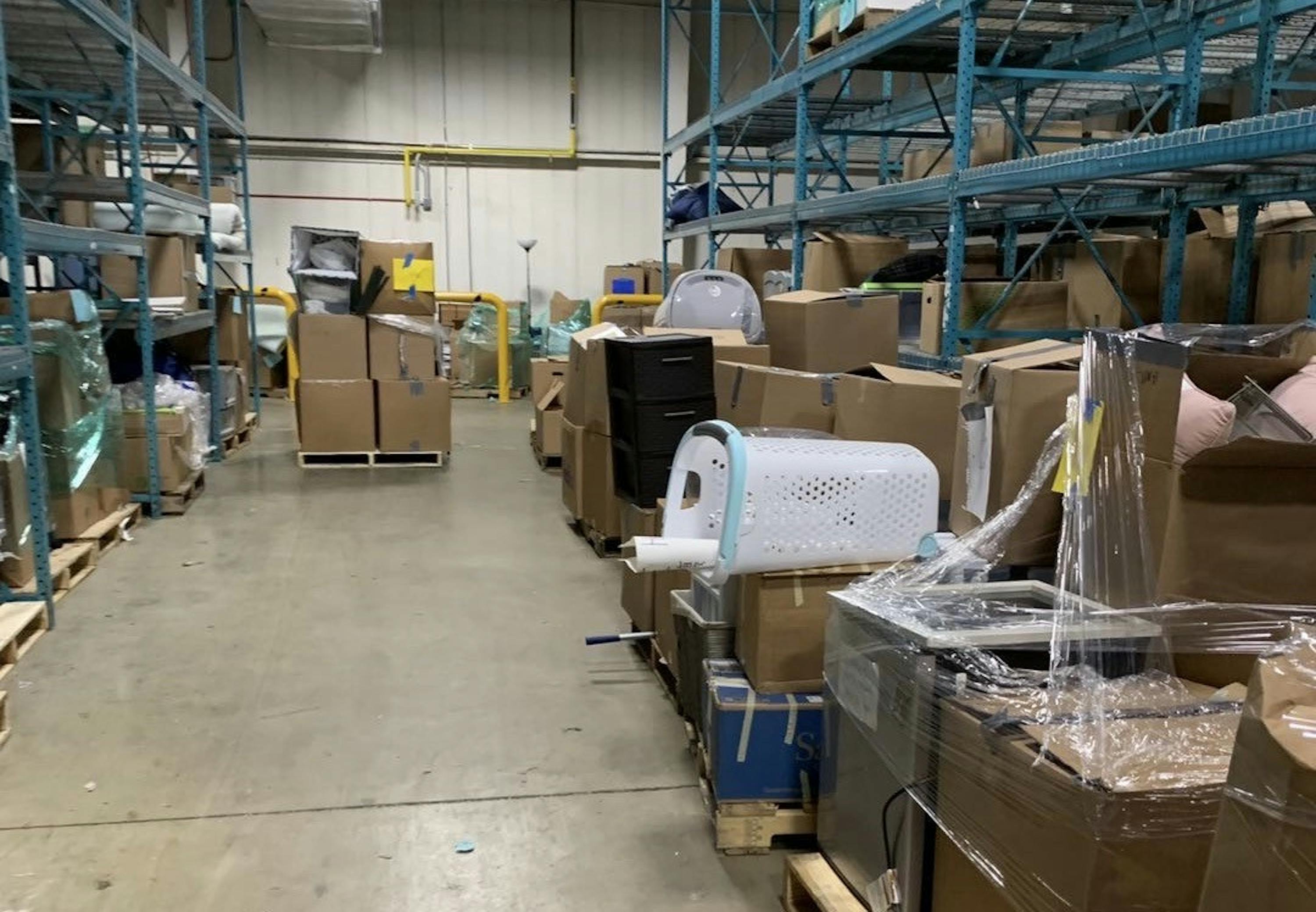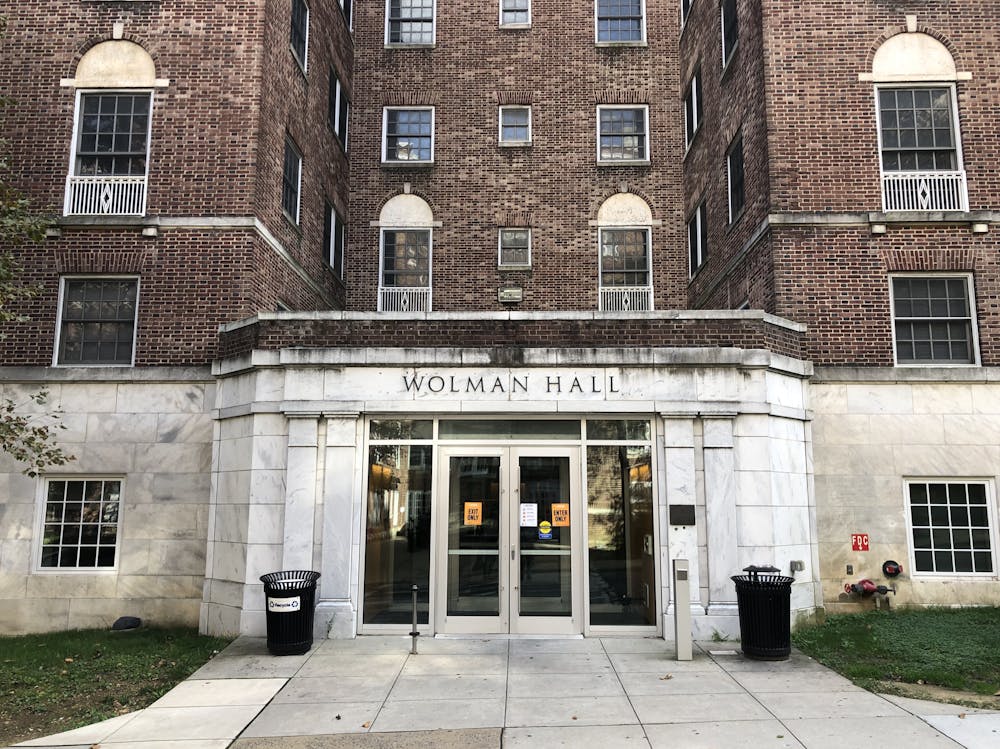Broken glasses, missing electronics, mislabeled boxes and radio silence — several students reported that the University failed to responsibly pack, store and return their items from this past spring semester. At least two months since the first reported incident, Hopkins still has yet to communicate substantially with affected students.
In May, Hopkins hired professional movers to pack the belongings of 1,325 students who could not return to Baltimore to retrieve them after suddenly being forced to leave University housing in March due to COVID-19.
Most packed belongings were stored in a warehouse at the Bayview Campus in East Baltimore. Other students had their belongings packed and stored in their dorm rooms. According to Director of Housing Sarah Mansfield, around 400 students have already retrieved their belongings.
Sophomore Maria Camila voiced her disappointment in the storage facility and the University’s lack of response.
“They weren’t sensitive to my feelings or my point of view. They wouldn’t respond to my emails promptly. Maybe they’re just busy... but it’s also just courtesy and keeping me up to date with everything, knowing that I lost so many of my things,” she said. “This shouldn’t have happened. I shouldn’t have lost anything.”
In an email to The News-Letter, Mansfield explained that a common cause for these issues is that items in the same room or dorm unit were often packed together.
“In September, we better organized the warehouse, added more staff to manage the process and improved communications with students who will still need to retrieve their belongings upon their return when public health guidance allows,” she wrote. “We are finalizing the reimbursement process and will communicate to affected students shortly.”
Junior Alice Xie was notified four hours prior to her scheduled pick-up appointment that the University was unable to locate her belongings. Since then, Housing has been able to locate several boxes and suitcases that contain her items.
“I had to wait two weeks, and I was basically living out of my suitcase during the last half of August,” she said. “They just found the suitcase, and it’s been two months since I was supposed to get all of my things.”
Xie also noted that the movers who packed her belongings did not do so with care. Leaking soy sauce bottles and oatmeal containers, she said, were packed alongside her kitchen equipment.
The retrieval process, Xie said, was a responsibility largely left to students, who had to recall what was missing of the returned items.
“It was essentially on me to remember everything that I had left back at Hopkins, which is unreasonable for a lot of students because we haven’t seen our things in half a year,” she said. “If I had never realized that I was missing those things, then I would have never gotten those things back.”
Mansfield did not share which third-party movers the University hired to pack student belongings, nor did she confirm whether the University launched an investigation into improper conduct, including theft.
Like Xie, Garcia was emailed a few hours prior to her scheduled appointment that none of her belongings could be located. She, however, did not see the email and arrived at the facility, where she was able to locate some of her belongings.
“They had me go around and look for my things. I ended up finding my bags because I recognized my suitcases, but I didn’t end up finding any of my boxes, and I was there for five hours that day,” she said.
According to Garcia, the storage facility was disorganized, and her belongings were mislabeled. It would have been difficult for her to ever retrieve her belongings, she said, had she not found them herself.
“It was just so disorganized, and [the University] had no idea what my things looked like so they weren’t able to be helpful,” she said. “My things said, ‘Room 244.’ My room was 224. If they ever were looking for my things, they wouldn’t have found them because that was not my room number.”
A friend of Garcia ended up locating some of Garcia’s belongings among the boxes that were returned to her. These boxes contained expensive electronics.
“I was glad that my friend got them, but if anyone else would have gotten them, they wouldn’t have known they were mine,” she said. “Lost objects are not only expensive, but mean a lot to me.”

COURTESY OF EVELYN SHIANG
Student belongings are stored among rows of pallets with cardboard boxes and loose items.
Some students packed their belongings themselves with boxes provided by the University prior to moving out.
Sophomore Evelyn Shiang left packed belongings in her dorm. When she retrieved her belongings after returning to Baltimore in August, two of the three boxes were missing. She was instructed to search through the storage facility herself but could not find the missing boxes.
“They told us that we should email Housing with descriptions of what we lost, and they would either get back to us if they find it or, if not, put me in the process for reimbursement,” she said. “I got an email confirming that they received my initial email, but I haven’t heard since.”
Shiang has not followed up with Housing since her initial email. However, even those who regularly reached out to the University have not had much success in receiving substantive updates on how the University will handle missing and damaged belongings.
Junior Lillian Oliver’s items were packed by outside movers but stored in her dorm over the summer. Her items were not transported to the storage facility at the Bayview Campus.
She reported that her Nintendo 3DS game console was missing, and that its case was discarded in the trash bin. Many of her belongings were also packed improperly, with leaking cleaning supplies and broken items.
“I initially got a response that they would look into it and, once they set the protocols, they would get back to me,” she said. “I emailed again on Sept. 22 because I haven’t heard back from them in a while. They got back to me saying that they reorganized and inventoried the warehouse, but I don’t think that really applies to me since my belongings never left my dorm room.”
Sophomore Class President Anthony Singleton, who serves as the chair of the Student Services Committee (SSC) in the Student Government Association (SGA), stated in an interview with The News-Letter that he understands the delayed response from Housing.
“It’s just been a crazy situation. It was sudden for us but was sudden for them too,” he said. “The University is launching a reimbursement process so that the students who were affected are getting some kind of compensation as soon as possible. They are doing the best that they can.”
Singleton added that he and the SSC have been working on this issue for about a month. He and Junior Class Senator Grace Wang are running pilot tests with the online housing portal where students will be able to file claims for missing or damaged items.
In early August, SGA launched an online form to solicit reports of mishandled belongings from students. According to Wang, the form collected about 50 testimonials.
Shiang called for more regular communication from the University about this issue.
“The school should have sent some follow-up emails on what its plans are — whether they are choosing to reimburse us or whether they were still looking,“ she said. “We were left in the dark.”
She also raised concerns about the reimbursement process, given that, according to Mansfield, nearly 1,000 students have yet to retrieve their belongings.
“A lot of students... are probably not going to be back for up to a year,” Shiang said. “If, for example, my items were packed with someone else’s items [and] the school reimburses me now and ends up finding my items later, that could be complicated.”
Oliver believes that the University did not keep its promise to the student body.
“I’m generally concerned about the professional movers they hired. I feel very upset at the whole process,” she said. “In the email, they promised professional movers who would store my things properly. I just kind of hoped that would be followed through.”





